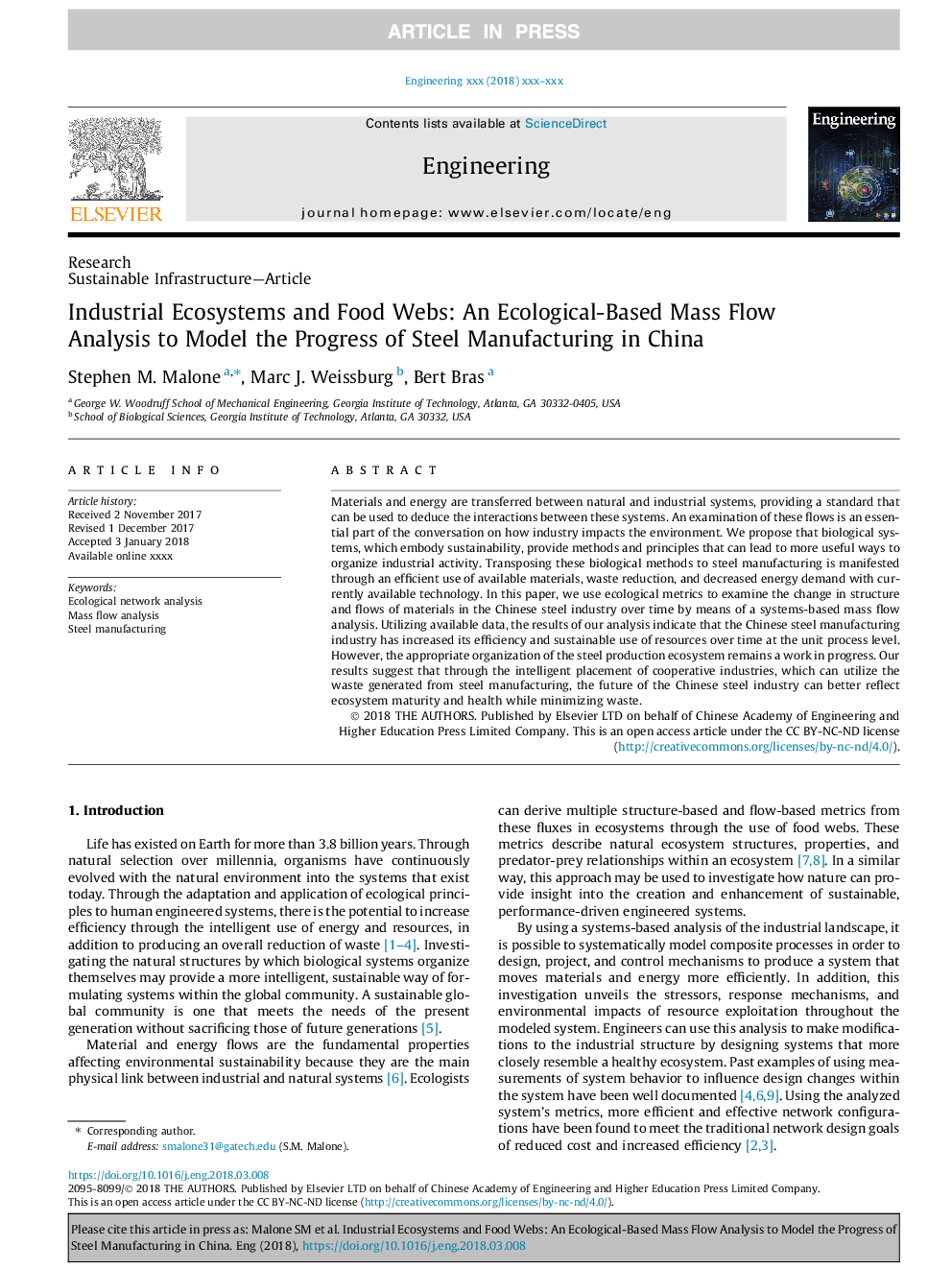| Article ID | Journal | Published Year | Pages | File Type |
|---|---|---|---|---|
| 6893308 | Engineering | 2018 | 9 Pages |
Abstract
Materials and energy are transferred between natural and industrial systems, providing a standard that can be used to deduce the interactions between these systems. An examination of these flows is an essential part of the conversation on how industry impacts the environment. We propose that biological systems, which embody sustainability, provide methods and principles that can lead to more useful ways to organize industrial activity. Transposing these biological methods to steel manufacturing is manifested through an efficient use of available materials, waste reduction, and decreased energy demand with currently available technology. In this paper, we use ecological metrics to examine the change in structure and flows of materials in the Chinese steel industry over time by means of a systems-based mass flow analysis. Utilizing available data, the results of our analysis indicate that the Chinese steel manufacturing industry has increased its efficiency and sustainable use of resources over time at the unit process level. However, the appropriate organization of the steel production ecosystem remains a work in progress. Our results suggest that through the intelligent placement of cooperative industries, which can utilize the waste generated from steel manufacturing, the future of the Chinese steel industry can better reflect ecosystem maturity and health while minimizing waste.
Related Topics
Physical Sciences and Engineering
Computer Science
Computer Science (General)
Authors
Stephen M. Malone, Marc J. Weissburg, Bert Bras,
